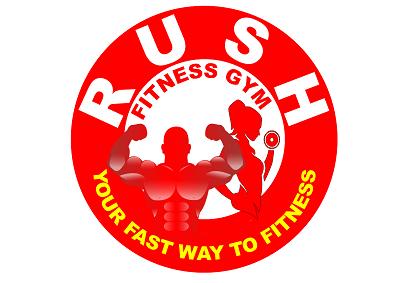There’s protein in just about everything: A freaking bagel has 10 grams of protein. Google it—right now. Yep, you’d have to eat a weird diet of applesauce and jelly beans to avoid getting enough protein.

Veggies, Beans, and Lentils
Not only do vegetables, beans, and lentils have tons of protein in them, they’re also superior to animal-based protein sources. Who needs saturated fat, cholesterol, anti-biotics, hormones, feces, and bad juju when you can eat PLANTS loaded with antioxidants, phytochemicals, vitamins, minerals, nutrients, and good vibes?
These foods not only don’t increase your risk of developing cancer and disease, as meat does, but actually lower it.
Avocado – 4 grams of protein per cup
Loaded with vitamins C, E, K, and B6 as well as riboflavin, niacin, folate, pantothenic acid, magnesium, and potassium

Broccoli – 4 grams of protein per cooked cup
Great source of calcium, vitamin C, fiber, and B vitamins
Asparagus – 5 grams of protein per roasted ounce
Great source of B vitamins and folate
Spinach – 5 grams of protein per cooked cup
Great source of vitamins A, C, E, K, and B6 as well as niacin, zinc, fiber, thiamine, folate, calcium, iron, magnesium, phosphorus, potassium, copper, and manganese
Artichokes – 8 grams of protein per cup
Great source of vitamin C, fiber, potassium, and magnesium
Green Peas – 9 grams of protein per cooked cup
Great source of iron, magnesium, phosphorus, zinc, copper, and several B vitamins as well as fiber, thiamine, folate, manganese, and vitamins A, C, and K

Edamame – 20 grams per cup
Great source of vitamin K1, folate, thiamine, riboflavin, iron, copper, and manganese
Pinto Beans – 12 grams of protein per cup
Great source of molybdenum, folate, fiber, copper, manganese, phosphorus, vitamins B12 and B6, magnesium, potassium, and iron
Kidney Beans – 13 grams of protein per cup
Great source of calcium, vitamin C, fiber, and B vitamins
Black Beans – 15 grams of protein per cup
Great source of antioxidants, fiber, folate, copper, manganese, thiamine, magnesium, phosphorus, and iron
Chickpeas – 15 grams of protein per cooked cup
Great source of fiber, iron, folate, phosphorus, potassium, and manganese
Lentils – 18 grams of protein per cooked cup
Great source of fiber, thiamine, folate, manganese, and vitamins A, C, and K

Lentil Pasta by Tolerant – 21 grams of protein per 3 ounces
Great source of folate, thiamine, and fiber
Grains, Nuts, and Seeds
Most people have no idea how much protein they’re actually supposed to get in a day (and usually eat way too much), but non-vegans always seem to wonder how vegans get enough protein. *Eye roll*
Here’s the real question: If dead animals are your main protein source, where do you get your riboflavin, niacin, lutein, zinc, phosphorous, thiamine, selenium, magnesium, folate, calcium, potassium, manganese, and vitamins A, C, and K—hmm?
Millet – 6 grams of protein per cooked cup
Great source of niacin, folate, thiamine, riboflavin, iron, magnesium, phosphorus, manganese, potassium, calcium, zinc, and phytochemicals
Amaranth – 7 grams of protein per cooked cup
Great source of iron, B vitamins, and magnesium
Wild Rice – 7 grams of protein per cooked cup
Great source of fiber, manganese, magnesium, copper, phosphorus, and B vitamins as well as an excellent source of iron, folate, and potassium
Quinoa – 8 grams of protein per cooked cup
Great source of fiber, iron, manganese, phosphorus, and magnesium

Ezekiel Bread – 8 grams of protein per two slices
Great source of fiber, folate, beta-carotene, and vitamins C and E
100 Percent Whole Wheat Pasta – 8 grams of protein per cooked cup
Great source of B vitamins and iron
Buckwheat – 24 grams of protein per cup
Great source of antioxidants, manganese, magnesium, phosphorus, niacin, zinc, iron, folate, and vitamin B6
Chia Seeds – 5 grams of protein per 2 tablespoons
Great source of calcium, magnesium, iron, zinc, boron, niacin, and vitamins B, D and E, and contains 8.7 times the omega-3 fatty acids found in wild Atlantic salmon
Pistachios – 6 grams of protein per ounce
Great source of copper, manganese, thiamine, phosphorus, and vitamin B6
Almonds – 6 grams of protein per ounce
Great source of vitamin E, manganese, biotin, copper, magnesium, molybdenum, riboflavin, and phosphorus
Sunflower Seeds – 6 grams of protein per quarter cup
Great source of manganese, selenium, phosphorus, magnesium, folate, niacin, and vitamins E, B1, and B6
Peanut Butter – 7 grams of protein per two tablespoons
Great source of magnesium, potassium, and vitamins B6 and E
Pumpkin Seeds – 8 grams of protein per ounce
Great source of magnesium, phosphorus, and zinc

Hempseeds – 10 grams of protein per ounce
Great source of magnesium, iron, calcium, zinc, selenium, and omega-3 and omega-6 fatty acids
Vegan Meats and Dairy Alternatives
Animals aren’t protein sources—they’re our friends. There are so many vegan meats, nondairy milks, and other plant-based foods that are high in protein, mind-blowingly delicious, and so much healthier that you won’t even have time to crave animals’ bodies, eggs, or milk.
Tofu – 20 grams of protein per cup (12 grams in two hard-boiled eggs)
Great source of calcium, manganese, copper, selenium, phosphorus, omega-3 fatty acids, iron, magnesium, zinc, and vitamin B1

Beyond Burger by Beyond Meat – 20 grams of protein per burger (19 grams in a beef burger)
Great source of iron, vitamin C, fiber, and calcium
Sausage by Field Roast – 25 grams of protein per sausage (18 grams in a pork sausage)
Great source of potassium and iron
Seitan – 25 grams of protein per 3.5 ounces (25 grams of protein in a steak)
Great source of selenium
Tempeh – 41 grams of protein per cup (20 grams in a chicken breast)
Great source of probiotics, B vitamins, and minerals such as magnesium and phosphorus
Kite Hill Ricotta Cheese – 3 grams of protein per ounce (3 grams in dairy ricotta)
Great source of vitamin E and potassium
Almond-Milk Plain Yogurt – 6 grams of protein per single-serving container (5 grams in dairy yogurt)
Great source of vitamin D and calcium
Nutritional Yeast – 14 grams of protein per ounce (5.7 grams in parmesan cheese)
Good source of fiber, zinc, magnesium, copper, manganese, and all the B vitamins, including B12
Soy Milk – 8 grams of protein per cup (8 grams in cow’s milk)
Great source of potassium, isoflavones, and vitamins A and B12, and often fortified with calcium and vitamin D
Wowiewowow, that’s so much protein and so many amazing benefits that come with all these delicious, nutritious noms. Everyone should be eating lots of beans, seeds, nuts, and vegetables because these are the foods that give you energy and glowing skin and protect you from disease.
When we’re eating enough of the good stuff, there’s just no room for unhealthy animal proteins in our diet.
Source: peta2.com
Don't forget to share and like this post!















